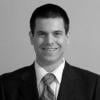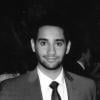Political Economy
Refers to the study of trade and commerce, their interactions with the law, customs, and government, and the dispersal of public income and wealth.
What is Political Economy?
The study of trade and commerce, their interactions with the law, customs, and government, and the dispersal of public income and wealth, is known as political economy.
Political economy as a field arose in ethical theory in the 18th century to investigate the allocation of governments' riches, with "political" referring to the Greek term polity and "economy" refers to the Greek word Oikos (household management).
Political economics is a social science that investigates productivity and the market. It studies how economic theories impact various socio-economic systems, such as socialism and communism, and the development and delivery of public services.
Different groups in an economy have different ideas about how their economy must grow, which is known as a command economy. Hence, it is a complicated discipline encompassing a wide spectrum of political objectives.
In the most basic form, it refers to economists' recommendations to the government on either broad economic measures or particular ideas devised by legislators.
A Command Economy is also a Centrally Planned Economy since the federal or national government controls the economy. In general, communist states follow a command economy and command economies, while China has recently begun to transition to a capitalist economy.
The central government controls the whole economy in a communist system, distributing resources and setting prices for products and services. Former communist dictatorial nations with command economies exist as well.
During times of conflict, most nations—even democratic, available alternatives - have an active role in economic administration, but not to the level that communist states do.
Command economies are frequently unproductive because they attempt to defy supply and demand rules. In most situations, a black market emerges to cover the gaps left by the central plan.
Types of Political Economy
This type of economy is a social scientific discipline investigating the interaction between a country's people and its administration when a public program is implemented. The interplay between politics and the economy is the foundation of the social science field.
1. Socialism
This political economy reinforces the theory that society, rather than a specific group of individuals, maintains and regulates the creation and delivery of goods and wealth.
The reasoning is that everything society produces results from people participating, regardless of class, income, or position. Socialism seeks to fill the rich-power divide, in which one or more persons do not have most of the power and riches.
2. Capitalism
This idea promotes wealth as a motivating factor for growth. Simply put, capitalism is based on the premise that private people and other players are motivated by their preferences to control production and distribution, determine prices, and generate market forces.
3. Communism
People regularly confuse communism with socialism, yet there is a significant distinction between the two philosophies. Karl Marx invented communism as a theory because he believed capitalism was restricted and caused a large disparity between the rich and the poor.
He advocated the shared use of resources, including wealth, and the authorities should supervise that production and distribution.
Political economists are those who study this economy. They investigate how public policy, the political environment, and state systems affect a country's economic status and future through a sociocultural, geopolitical, and economic perspective.
Political economy as we know it now originated in the 18th century. Scholars of the time analyzed how money was divided and distributed among people. Adam Smith and John Stuart Mill's books were among the first to investigate this issue.
Political Economy of Economic Policies
Many economic concerns are viewed through the lens of political convictions. Some individuals, for instance, are naturally wary of federal action. As a result, they favor economic policies that aim to decrease government intervention in the economy.
For instance, supply-side economics focuses on deregulation, privatization, and tax reduction.
Economists, on the other hand, may seek to promote greater equality and fairness and be more likely to urge government involvement for that purpose.
If you ask various economists to comment on the acceptability of income tax cuts for the wealthy, their policy recommendations will most likely reflect their political views.
Some economists may be politically agnostic and apolitical. They may write a paper that questions their earlier beliefs. Regardless of their inclinations, individuals may discover that rail privatization is unjustified or that tax cuts boost economic well-being.
Conversely, politicians can rely on analysts and economic studies to support their political position. Mrs. Thatcher and President Ronald Reagan were staunch supporters of supply-side economists such as Milton Friedman, Keith Joseph, and Friedrich Hayek.
When Reagan attempted to "roll back the state's boundaries," there was no shortage of economists who could give a theoretical foundation for the political experiment.
Just as many economists said it was a bad idea, economists can be boosted by their political backers.
Many Republicans in the United States supported Paul Ryan's budget ideas because they promised tax cuts for the wealthy, reduced welfare payments, and reduced the deficit. For Republicans, this is a popular set of policies.
Economists who adhere to evidence and resist cherry-picking favorable figures, but on the other hand, may keep coming up with findings and suggestions that may not necessarily match preconceived political concerns.
Many economists could promote EU and European cooperation in a broad sense. Still, the proof from the Euro currency union is that it exacerbated many economic problems, such as poor expansion, falling prices, and budget deficits.
Components of Political Economy
Ancient Economy politicians and Modern Political Economy (MPE) are the two branches of political economics. Classical Political Ecology examines the writings of thinkers including Machiavelli, Adam Smith, and Karl Marx.
On the other hand, today's politicians investigate the works of contemporary scholars, economic experts, and political scientists such as John Maynard Keynes, Milton Friedman, and Friedrich Hayek.
Game theory influences the study of political economics because it includes multiple parties vying for dwindling resources and the ability to determine which policies will provide the best results.
It also refers to the economy's capacity to attain the intended outcomes. The study is divided into three primary categories:
1. Cross-disciplinary research
Political economy is an interdisciplinary framework that concentrates on economics, psychology, and political science to help explain how economic models, national structures, and the ecosystem interact.
2. Economic theories of democratic structures
The three interdisciplinary research areas are the international political economy and how it influences foreign relations and the distribution of resources in varied socio-economic organizations.
3. A new political economy is emerging
Economic policies are seen as a view or action that must be further addressed rather than a structure that must be studied in the new political economy field. It combines conventional economics ideology with modern developments in politics and economics.
The concept rejects conventional assumptions about agency and state and market interests in favor of political discussions about social goals and needs.
4. Political economy on the international stage
The link between economics and international relations is studied in global politics, sometimes known as international political economy. It incorporates concepts from economics, sociology, and politics.
The study of how nations and institutions use global economic relations to affect political systems is known as international political economics.
Profits and losses from adopting a policy are of great interest to political economists. It helps them figure out which groups favor and which oppose the program. They also examine how people might boost their usefulness by participating in politics.
Modern Political Economy
Even in ostensibly market-driven cultures, the MPE is founded on the considerable (and frequently expanding) role that government plays in the economy.
As a result, it is stated that precise modeling of the public sector's behavior and its relationship with the economy's structure is required.
Economic policies are seen as a view or action that must be further addressed rather than a framework that must be studied in the new politics field. It combines conventional economic ideologies with modern developments in politics and economics.
The approach rejects traditional assumptions about agency and state and market interests in favor of political discussions about social goals and needs.
More recent philosophers and economists, such as Karl Marx, are studied in application areas of political economics.
Marx, as previously said, became disillusioned with capitalism as a whole. He felt that people had borne the brunt of rigid social classes in which one or more people owned most of the wealth.
This would be eliminated under communist views, allowing everyone to live equally while the economy runs according to everyone's capacity and needs. The government controls and distributes resources in communist societies.
The majority of people mix up socialism and communism. Indeed, there are some parallels—for example, both emphasize closing the disparity between affluent and poor, and civilization should prioritize balance among all residents.
However, there are some fundamental distinctions between the two.
Citizens in a socialist society own property, but resources in a communist society are owned and operated by the authorities.
Under socialism, citizens could still buy products and services, but those who live in a communist society have their fundamental needs met by the administration.
The goal of the New Politicians is to have a better understanding of crucial policy challenges. It is not an attempt by economists to colonize political science, as some have suggested.
Rather, the fundamental objective is to broaden economists' ability to analyze situations that still need some understanding of economic and political judgment calls.
The MPE, on the other hand, restores the division between economics and political science at the close of the 19th century.
Researched and Authored by Abdelmoussaour
Free Resources
To continue learning and advancing your career, check out these additional helpful WSO resources:




or Want to Sign up with your social account?